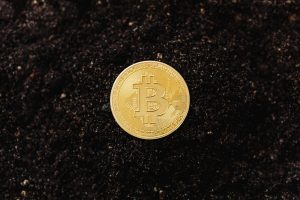Personalized Nutrition: How Technology is Customizing Our Diets
In recent years, there has been a growing interest in personalized nutrition – the idea that our diets can and should be tailored to our individual needs and goals. While the concept of personalized nutrition has been around for decades, it is only with the advent of technology that it has truly taken off. With the help of cutting-edge technologies like artificial intelligence, machine learning, and data analytics, nutritionists and health experts are now able to customize our diets in unprecedented ways. In this article, we will explore how technology is revolutionizing personalized nutrition and changing the way we think about food.
The Rise of Personalized Nutrition
Traditionally, nutrition advice has been based on population-level guidelines and generalized recommendations. However, we now know that not everyone responds the same way to the same diet. Factors such as genetics, lifestyle, and environment can all play a role in how our bodies process food and nutrients. This has led to a shift towards individualized nutrition and the development of personalized diets.
One of the key drivers behind the rise of personalized nutrition is the availability of technology. With the help of digital tools, nutritionists can gather data about a person’s health, diet, and lifestyle in a more efficient and accurate manner. This data can then be analyzed to identify patterns and trends that can inform a customized nutrition plan.
One such technology is DNA testing. By analyzing a person’s genetic makeup, experts can determine how their body responds to different nutrients and can provide personalized recommendations based on their genetic profile. This can help individuals make more informed decisions about their diet and lifestyle choices, leading to better health outcomes.
The Role of Artificial Intelligence
Another technology that is playing a crucial role in personalized nutrition is artificial intelligence (AI). AI refers to the ability of machines to learn and make decisions based on data. In the context of personalized nutrition, AI can analyze vast amounts of data, including a person’s health records, lifestyle habits, and food preferences, to create personalized recommendations.
One example of AI in personalized nutrition is meal planning apps. By inputting personal information such as dietary restrictions, food preferences, and health goals, these apps can generate meal plans tailored to individual needs. They can also suggest swaps and substitutions to make a meal plan more personalized and user-friendly.
Wearable Technology and Nutrition Tracking
Wearable technology, such as fitness trackers and smartwatches, is also playing a role in personalized nutrition. These devices not only track our physical activity and sleep patterns but also provide insights into our food consumption. By monitoring what we eat, how much we eat, and when we eat, these devices can help us make more informed decisions about our nutrition and eating habits.
Some wearable technology even offers personalized nutrition coaching. These devices use data to create real-time recommendations and feedback on our eating patterns. For example, they may suggest healthier alternatives or remind us to drink more water throughout the day.
The Future of Personalized Nutrition
The advancements in technology have opened up a world of possibilities when it comes to personalized nutrition. The use of data, artificial intelligence, and wearable technology is just the beginning – the potential for further innovation and customization is endless.
One area of personalized nutrition that is gaining traction is personalized supplements. Using DNA testing and data analytics, nutritionists can identify nutrient deficiencies and create personalized supplement plans to address them.
Another exciting development is the use of gut microbiome testing to create personalized nutrition plans. The gut microbiome refers to the trillions of bacteria that live in our digestive system and play a crucial role in our overall health. By analyzing a person’s gut microbiome, experts can determine which foods are beneficial and harmful to that individual and tailor their diet accordingly.
In Conclusion
Technology is transforming the way we approach nutrition and making personalized diets a reality. By combining data, artificial intelligence, and wearable technology, nutrition experts can create customized plans that take into account an individual’s unique needs, preferences, and goals. As technology continues to evolve, we can expect to see even more personalized nutrition options and a more personalized approach to overall health and wellness.











